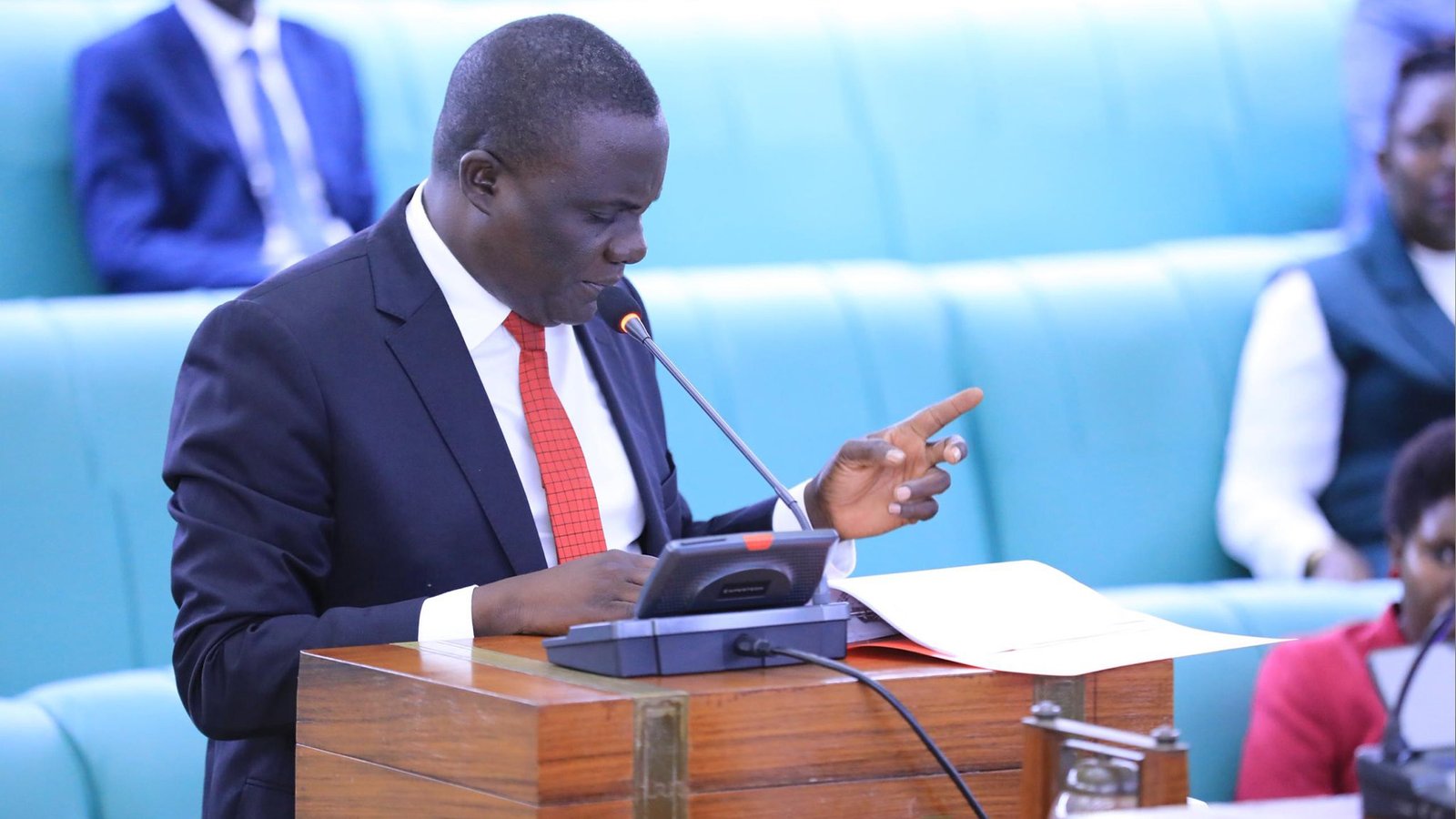Lawmakers were left stunned after revelations that government poured over UGX 723 billion into Dei-Biopharma Ltd, only for the company to later be valued at a mere UGX 2.05 billion.
The issue came to light on Tuesday when the Public Accounts Committee (PAC) tabled its findings from the Auditor General’s review of the government’s consolidated accounts for the financial year ending June 2024.
Butambala County MP Muwanga Kivumbi, presenting the report, questioned how the Ministry of Finance could commit such colossal sums without first ascertaining the company’s worth.
“It defeats investment logic for government to put over UGX 723 billion into a firm valued at just UGX 2 billion, only to walk away with a 9.4% minority stake. That has no precedent in finance,” Kivumbi told Parliament.
Latest
Dr. Besigye’s Former Aide Sam Mugumya Still Missing as Army Disowns Custody
Government Takes Youth Day to Masindi in Push for Inclusivity
UPDF Commanders Map Out Security Strategy Ahead of 2026 Elections
Police Arrest Eight in Shs242m Old Kampala Robbery, Recover Half of Stolen Cash
NRM Secretariat Rallies Pressure Groups Ahead of Museveni Nomination
State Using Arrests to Weaken NUP- Ssenyonyi
Mao: Copyright Laws Must Defend Creators, Not Pirates
Govt Releases Shs 2.4 Billion to Uganda Cranes for CHAN 2024 Heroics
Tanga Odoi’s Son Rejects NRM Tribunal Ruling on Youth League Election
NEED Suspends Two NEC Leaders Amid Alleged Defection to PLU
EC Warns Candidates: Follow Rules or Face Consequences in 2025/2026 Elections
UCC Cracks Down on Illegal Broadcasting of Copyrighted Works
Nepal in Chaos: Parliament Set Ablaze Amid Widespread Protests, PM Resigns
The controversial bailout began in December 2023 with UGX 75 billion, followed by UGX 70 billion during FY2023/24, before Parliament approved an additional UGX 578.4 billion in April 2024 through a supplementary budget. The total commitment so far stands at UGX 723.4 billion.
However, according to Auditor General Edward Akol, there was no due diligence conducted, no feasibility study undertaken, and his office was denied access to key documents such as the shareholders’ agreement. To date, government has not received its share certificates.
Civil society has also voiced outrage. Timothy Chemonges, Executive Director of the Centre for Policy Analysis (CEPA), described the secrecy as a betrayal of public trust.
“When decisions of this magnitude are taken in the dark, Parliament is reduced to a rubber stamp. Ugandans deserve transparency, not backroom deals,” he said.
PAC recommended that Secretary to the Treasury, Ramathan Ggoobi, be personally held accountable for withholding critical information in breach of the Audit Act. It also directed the Ministry of Finance to work with Attorney General Kiwanuka Kiryowa and Dei-Biopharma to provide the necessary agreements and share certificates to safeguard government’s stake.
The Ministry of Finance later told the committee that as of July 23, 2024, Dei-Biopharma had been valued at just UGX 2.05 billion, and that government’s 9.4% stake would only be formalized after amending the company’s Articles of Association.
Read Also
The Mystery Behind Duchenne: A Mother and Son’s Struggle with a Silent Killer
Electoral Commission Opens Channels for Complaints During Nomination Exercise
Chaos at Kawempe Court as Magistrate Walks Out After Heated Clash Between State and Defence
Fire Guts Workshop in Ntinda, Five Vehicles Destroyed
NUP Deputy Spokesperson Abducted Outside Court as Fears of Enforced Disappearances Resurface
NUP Threatens Legal Action Against Electoral Commission Over Blocked Nominations
European leaders to visit US to discuss war in Ukraine, Trump says
Luuka PDM SACCO Leaders Remanded Over Extortion of Beneficiaries
MoLG, NPA Rally Physical Planners to Enforce New Development Guidelines
Putin rejects Western security in Ukraine, warning troops would be target
PAC’s report also flagged irregularities in pension and gratuity payments. The Ministry of Finance released UGX 382 billion in supplementary funds for FY2023/24 without official requests from accounting officers.
The Auditor General discovered that 185 entities benefited from the allocations – including eight ministries, departments and agencies that received UGX 16 billion and 177 local governments that shared UGX 366 billion.
The Finance Ministry defended the move, arguing that budget shortfalls had left pension obligations severely underfunded. But PAC was not convinced, warning that future supplementary releases must strictly follow Regulation 18(2) of the Public Finance Management Regulations, which requires written requests before approval.





